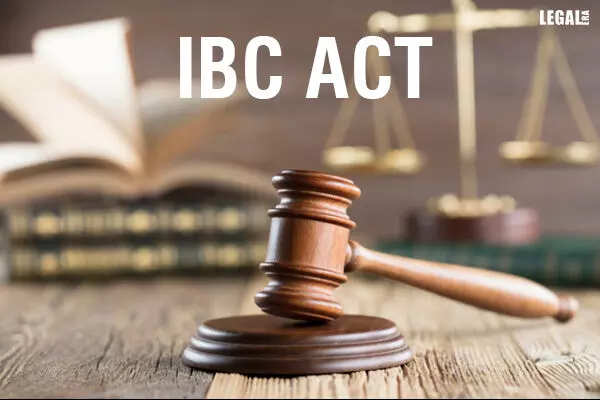- Home
- News
- Articles+
- Aerospace
- Agriculture
- Alternate Dispute Resolution
- Banking and Finance
- Bankruptcy
- Book Review
- Bribery & Corruption
- Commercial Litigation
- Competition Law
- Conference Reports
- Consumer Products
- Contract
- Corporate Governance
- Corporate Law
- Covid-19
- Cryptocurrency
- Cybersecurity
- Data Protection
- Defence
- Digital Economy
- E-commerce
- Employment Law
- Energy and Natural Resources
- Entertainment and Sports Law
- Environmental Law
- FDI
- Food and Beverage
- Health Care
- IBC Diaries
- Insurance Law
- Intellectual Property
- International Law
- Know the Law
- Labour Laws
- Litigation
- Litigation Funding
- Manufacturing
- Mergers & Acquisitions
- NFTs
- Privacy
- Private Equity
- Project Finance
- Real Estate
- Risk and Compliance
- Technology Media and Telecom
- Tributes
- Zoom In
- Take On Board
- In Focus
- Law & Policy and Regulation
- IP & Tech Era
- Viewpoint
- Arbitration & Mediation
- Tax
- Student Corner
- AI
- ESG
- Gaming
- Inclusion & Diversity
- Law Firms
- In-House
- Rankings
- E-Magazine
- Legal Era TV
- Events
- News
- Articles
- Aerospace
- Agriculture
- Alternate Dispute Resolution
- Banking and Finance
- Bankruptcy
- Book Review
- Bribery & Corruption
- Commercial Litigation
- Competition Law
- Conference Reports
- Consumer Products
- Contract
- Corporate Governance
- Corporate Law
- Covid-19
- Cryptocurrency
- Cybersecurity
- Data Protection
- Defence
- Digital Economy
- E-commerce
- Employment Law
- Energy and Natural Resources
- Entertainment and Sports Law
- Environmental Law
- FDI
- Food and Beverage
- Health Care
- IBC Diaries
- Insurance Law
- Intellectual Property
- International Law
- Know the Law
- Labour Laws
- Litigation
- Litigation Funding
- Manufacturing
- Mergers & Acquisitions
- NFTs
- Privacy
- Private Equity
- Project Finance
- Real Estate
- Risk and Compliance
- Technology Media and Telecom
- Tributes
- Zoom In
- Take On Board
- In Focus
- Law & Policy and Regulation
- IP & Tech Era
- Viewpoint
- Arbitration & Mediation
- Tax
- Student Corner
- AI
- ESG
- Gaming
- Inclusion & Diversity
- Law Firms
- In-House
- Rankings
- E-Magazine
- Legal Era TV
- Events
NCLAT: No Application Can be Filed for Default which Occurred During the Period of Section 10A of IBC

NCLAT: No Application Can be Filed for Default which Occurred During the Period of Section 10A of IBC
The National Company Law Appellate Tribunal (NCLAT), Delhi, by its division member comprising of Justice Ashok Bhushan (Chairperson) and Mr. Barun Mitra (Technical Member) has observed, Section 10A of the Insolvency and Bankruptcy Code, 2016 has no application when an action is initiated for default which occurred subsequent to 10A period.
The bench held that what is prohibited by Section 10A is that no application shall ever be filed for the default which occurred during the period of Section 10A i.e., from 25th March, 2020 to 25th March, 2021.
In the present case, an appeal had been filed against order dated 30 March, 2023 passed by the National Company Law Tribunal (NCLT), had rejected an Interim Application (IA) filed by the Appellant-NuFuture Digital (India) Limited., by which the Company Petition filed under Section 7 by the Financial Creditor was prayed to be dismissed as barred by Section 10A.
The Adjudicating Authority by the impugned order dated 30 March, 2023 rejected the IA holding that the Section 7 application was not barred by Section 10A.
In the present case, the date of default claimed was 31 March, 2021. The Financial Creditor had filed an affidavit in reply to the I.A. on 23 February, 2023.
In this regard, the bench noted that as per Para 5 of Reply to the application where it was clearly stated that while the total claim would be higher, the present Petition was filed only with respect to the default committed after the 10A period was over i.e., for the default on 31st March 2021 and thereafter.
The NCLAT observed, “what is prohibited by Section 10A is that no application shall ever be filed for the default which occurred during the period of Section 10A i.e., from 25th March, 2020 to 25th March, 2021. Section 10A has no application when an action is initiated for default which occurred subsequent to 10A period.”
The bench further noted that Section 7 application as well as Reply filed to the I.A. clearly indicated that Section 7 application which was filed by the Financial Creditor wad confined to the default committed by the Appellant on 31 March, 2021 and thereafter.
The NCLAT was of the view that, “No defaulted amount included in the Section 7 application is for the period covered by Section 10A, hence, the there was no occasion to hold that Section 7 application was barred by Section 10A.”
Further, the bench stated that the notice dated 22 October, 2022 cannot be a fetter in exercising the rights as conferred under the Debenture Trust Cum Mortgage Deed to call for repayment as per the Debenture Trust Cum Mortgage Deed.
In view of the foregoing, the NCLAT upheld the order passed by the Adjudicating Authority and held that the application under Section 7 filed by the Financial Creditor was not hit by Section 10A.



